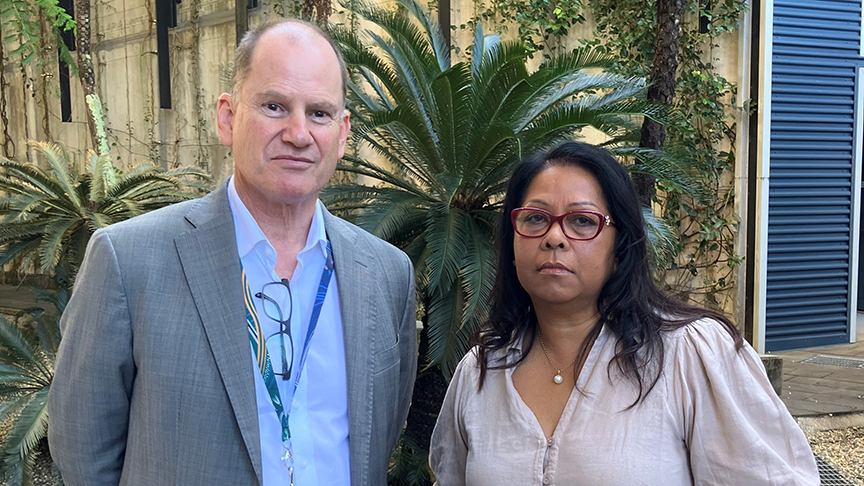
Tropical Public Health Services (Cairns) is urging people to be on the lookout for signs of meningococcal disease, following an outbreak of the dangerous disease in Yarrabah.
Two young people have been treated for meningococcal disease at Yarrabah Emergency Department. One of these has been transferred to Townsville University Hospital.
Dr Paul Dugdale, the Acting Director of Tropical Public Health Services (Cairns) said the health service had administered antibiotics to close contacts within the community.
‘Meningococcal disease is caused by bacteria and is transmitted by close contact,’ Dr Dugdale said.
‘At any given time, meningococcal bacteria are carried by about 10% of the population harmlessly at the back of the throat or in the nose.
‘The bacteria can be spread via droplets from the nose or throat during coughing and sneezing or close contact such as kissing.
Meningococcal disease is a relatively rare illness; however, the disease can cause serious illness marked by a rapid deterioration.’
The signs and symptoms of the illness include:
- rash
- vomiting,
- fever,
- headache,
- confusion,
- stiff neck and
- joint pain
‘If concerned, people should seek immediate medical attention, as early treatment with antibiotics can be lifesaving,’ Dr Dugdale said.
‘Parents and carers should also make sure their children’s meningococcal vaccines are up to date.
‘In Australia, a free meningococcal ACWY vaccine is provided for children at 12 months of age and in Year 10 of secondary school (or aged 15 to 19 years).
If children missed receiving the vaccine at school, it can be provided by a local GP.
There is also a meningococcal B vaccine which is free for Aboriginal and Torres Strait Islander babies less than 2 years of age and people with specified medical risk conditions that make them more vulnerable to invasive meningococcal disease.’
Gurriny Yealamucka Health Services, Director of Clinical Services Dr Jason King is only too aware of the serious risk to community that meningococcal infection poses.
‘Gurriny’s own Public Health Team have been working closely with community since the first case was identified a little over 10 days ago,’ Dr King said.
‘The new case this week is of concern, as there is commonality between the case’s household, so further contact tracing has commenced along with screening of all close and household contacts for signs of symptoms.
‘Our Public Health team have stepped up our vaccination efforts, and will continue to do so, as vaccination is a strong preventative measure, along with continued messaging into community regarding symptoms and treatment.
‘The unfortunate issue here, we are, and will continue to be, a high-risk community due to our chronic housing situation.’
Background
Meningococcal disease is a relatively rare illness, it does not spread easily, and outbreaks are uncommon in Far North Queensland.
Overcrowding in housing represents a significant risk of spreading the bacteria.
The bacteria are spread by activities such as sneezing, coughing, kissing, and sharing food or drinks. Environments where people are in close contact, such as day-care centres, school camps, parties and nightclubs, make it easier for the bacteria to spread.
There are many different strains of meningococcus – since the C-vaccine was introduced, the most common in Australia is now B.
The meningococcal C vaccine provides good protection against strain C serogroups.
The number of cases of C serogroups has decreased in Australia following the introduction of this vaccine.
A meningococcal strain B vaccine is normally available in the private market. The strains have a different appearance to the body’s immune system, so immunity to one strain does not give immunity to another strain.
Children aged less than five years, particularly infants aged less than one year, have the highest incidence of invasive meningococcal disease caused by meningococcal B serogroups.
A lower, secondary peak in incidence is seen in late adolescence and early adulthood.
The infection can develop very quickly. It can piggyback on other respiratory infections such as influenza. If infection is diagnosed early enough and the right antibiotics are given quickly, most people make a complete recovery.
Even with antibiotic treatment, invasive meningococcal disease causes death in about five to 10 per cent of cases. Survival varies with the strain and age of the patient. Most cases occur suddenly and are unrelated to any other cases.
Outbreaks where more than one person is affected are rare.